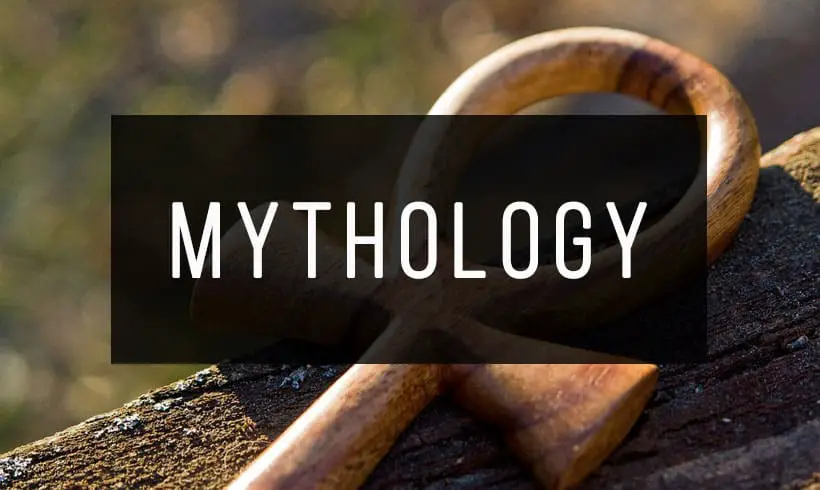Welcome, mythology enthusiast! Here you will find a wide selection of mythology books to download for free, covering various cultures and eras.
Explore Greek, Roman, Egyptian, Norse, and many other mythologies as you discover how these ancient stories have influenced our culture throughout history.
In addition to offering you the possibility to download mythology books for free, we strive to provide you with an enriching and easy-to-navigate experience.
We not only want you to enjoy reading but also invite you to dive into the fascinating world of mythology through our additional resources. You’ll find articles, reviews, and detailed analysis to make your experience even more complete and interesting.
So, don’t wait any longer, explore our vast library of mythology books and let the stories of gods and heroes transport you to worlds of fantasy and adventure.
Happy reading!
1) Celtic Mythology Books
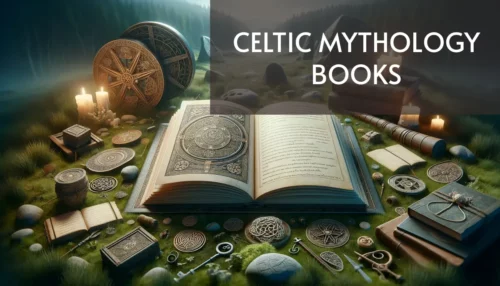
Culture and religion are merged to give rise to the so-called Celtic mythology, a series of stories that are responsible for identifying a group of people who in addition to generally occupying European territory, the Pyrenees and British Isles shared the Celtic language and a socio-cultural structure quite similar.
Among the Celtic people there were some tribes in close contact with Rome, like the Gauls and Celtiberians. This mythology did not survive the Roman Empire, due to their subsequent conversion to Christianity and the loss of their original languages. Although ironically it was through Roman and Christian sources, contemporary, that we know details about their beliefs.
Discover the description of the beautiful Celtic landscapes and the magical stories of the ancient peoples of Ireland and Great Britain with our compilation of books on Celtic Mythology in PDF format.
2) Chinese Mythology Books
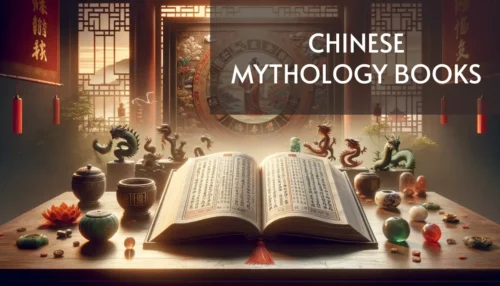
China is home to many mythological traditions, such as that of the Han Chinese and their Huaxian predecessors, as well as Tibetan mythology, Turkish mythology, Korean mythology, and many others. However, the study of Chinese mythology tends to focus on Chinese language material.
Chinese mythology is a body of cultural history, folktales, and religious tradition that has been passed down for centuries in oral or written form. There are several aspects of Chinese mythology, such as creation myths and legends and myths about the founding of Chinese culture and the Chinese state.
Like many other mythologies, Chinese mythology also explains the phenomena of nature through the exploits of its characters. It tells the origin of the world, the existence of a hell and a paradise and other events that can also have an important social weight.
3) Egyptian Mythology Books
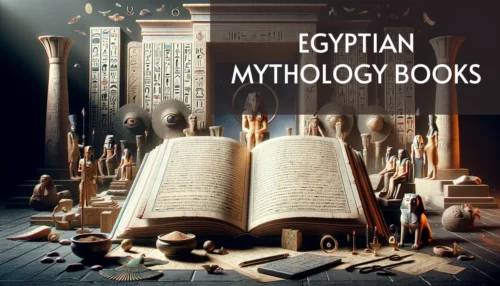
To locate chronologically what is known by Egyptian mythology, one understands by it the study of beliefs that are supported by the religion of the Ancient Egypt, that is, from the pre-dynastic era until the imposition of Christianity.
Because of its characteristics, the Egyptian mythology developed, influenced and endured for more than three thousand years, with certain variations as time went by.
There is no doubt that this mythology has everything but a lack of fascinating stories and amazing related facts, such as beliefs about death and the soul. From the physiognomy of the gods, with half human and half animal bodies, to the mummies, the pyramids, their forms of expression, everything is really worth studying.
4) Greek Mythology Books
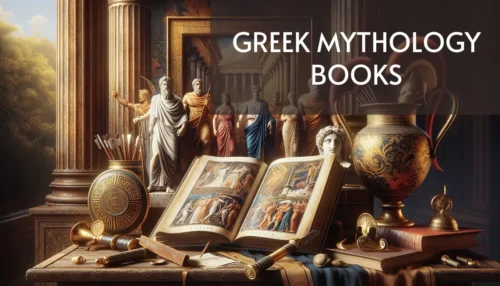
What we know as Greek Mythology is defined as the group of myths and legends created and belonging to the inhabitants of Ancient Greece. These stories were part of the religion they professed and practiced, and dealt with the lives of their gods and heroes. They also talked about the origin of the world, its cults and rituals.
Legends about Greek Mythology were preserved in Homeric hymns, in epic poetry, in lyric poems and in diverse works of the authors of the fifth century b.C. There are also stories in texts of poets and researchers of the period known as Hellenistic, and in texts of authors like Plutarch and Pausanias of the Roman Empire.
Archaeological research has thrown up great and important details about Greek mythology, revealing decorations with representations of their gods and heroes on diverse objects.
Without a doubt the myths and legends of Ancient Greece have had a great influence on the culture, literature and art of the Western world, becoming the inspiration for many works.
5) Hindu Mythology Books
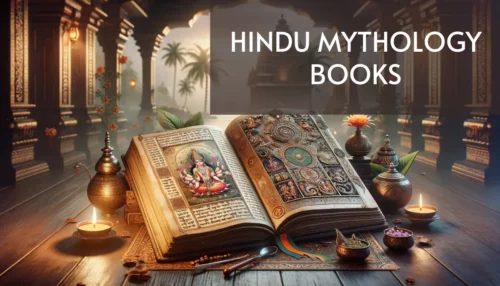
Hindu mythology refers to a large literary group in India (especially the mythology of Hinduism) which details in a very specific way the life and times of legendary characters, deities and divine incarnations.
These are fully intertwined with discourse of doctrines and ethical values currently applied in the Hindu way of life. An important detail is that Hindus do not consider this as a mythology, it is similar to Christians with the Bible, that is, it is not considered as mythology.
In the foundations of this mythology, we find the triad that leads the three principles of existence of the universe: Brahma (creation), Vishnu (protection and conservation) and Shiva (destruction).
6) Japanese Mythology Books
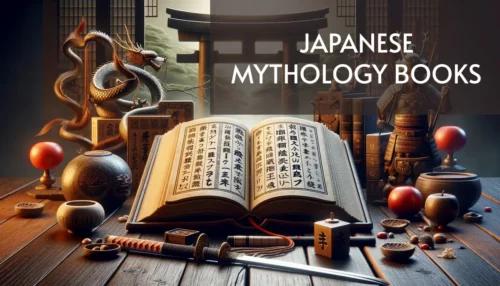
Japanese mythology, although complex and a little difficult to understand for the Western world, is not very different from other mythologies. As in others, its myths tell stories related to creation, destruction, death, rebirth, love and revenge. Also, it is full of descriptions of nature, creatures, animals, dead people and ghosts.
Taking into account that the importation of writing to Japan by the Chinese culture was somewhat late, it is quite difficult to locate it with full chronological accuracy, however it is possible to say that it was during the Yayoi period that the tribal polytheistic religion arrived and with it the opening of this series of convictions.
If you want to know more about this fascinating world, we invite you to visit our list of books on Japanese Mythology in PDF.
7) Legends Books

Legends have had an interesting evolution through time and continue more alive than ever in the hearts of many peoples and cultures in the world. In addition, along with myth and other oral traditions, the legend builds the identity of entire communities that find in it the answer to many human concerns and questions.
The importance of legends lies in the fact that by studying them, ways of being, thinking and doing of certain cultures can be understood. They make up part of the historical heritage of humanity.
Legends are also oral traditions that leave an invaluable legacy to explain the inexplicable. Many questions are answered by these narratives, which exalt and idealize reality to show facts in an artistic, educational and, at times, instructive way.
8) Mexican Mythology Books
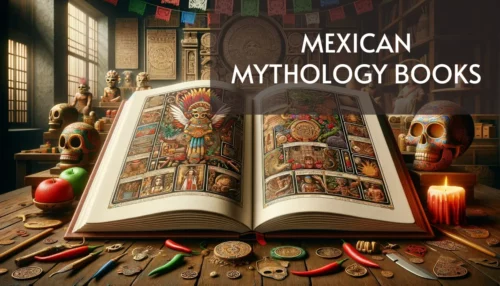
Mexican mythology, like its population, reflects a mixture of indigenous and Spanish influences. Most people in modern Mexico have their ancestors in the Native Americans, in the Spaniards who controlled Mexico for three centuries, or in both.
The mythology of Mexico is a product of syncretism, a process in which two belief systems merge to form one that is different from either of the original systems or in which a new belief system overlays an older one that has not disappeared.
The Aztec myths and everything that represents their culture, survived with dignity, after the colonizing process. However, within the vast mythology of Mexico, there is some Christian influence. Explore it with our selection of books on Mexican mythology, with free access and immediate download.
9) Norse Mythology Books
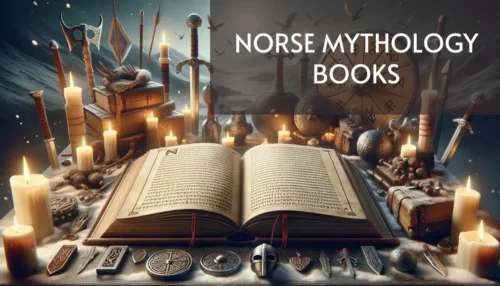
The central axis of the Norse Mythology, also called Germanic mythology, was the set of stories of religious nature that gave meaning to the life of the Vikings. Among the gods best known for their stories, we can mention Odin, Freyja, Thor and Loki.
The source of information of all that is known about this mythology, is constituted mainly, the Eddas.
The Elder Edda is the oldest, and contains a large collection of anonymous poems. It is written in Icelandic and has an estimated origin of 1000 or earlier. The poems can be divided into two sections: the mythical poems that describe the origin and end of the world, and the heroic poems that deal mainly with Odin and Thor.
As for the Younger Edda, this is known as the Edda of Snorre Sturluson, its author. This Edda was written around 1220, and is considered a manual for the scalds or poets.
10) Roman Mythology Books
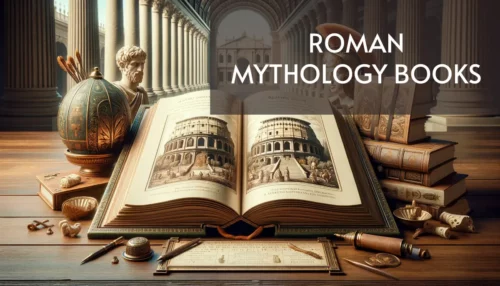
The ancient Romans had a rich mythology and, although much of it was derived from their neighbors and predecessors, the Greeks, the rich history of the Roman people was taking power as it eventually became an empire.
Entering into the beliefs of Roman mythology is a truly captivating work because it is the set of the most deeply rooted convictions of ancient Rome, but it is important to note that this cultural contribution is almost that divided into two main parts, first we have the rituals and myths truly authentic to Rome and on the other hand is the so-called merger with Greek mythology.
This is a mandatory subject, for anyone who wishes to expand their cultural background and learn about the origin of many Western beliefs and customs.
11) Vikings Books
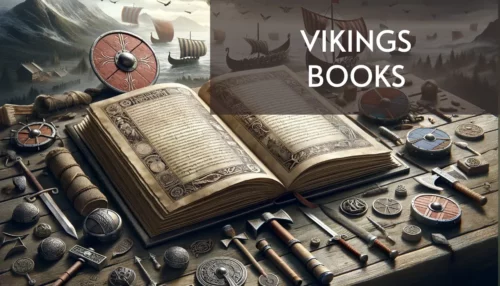
Viking is a term that comes from the Norse víkingr. The concept refers to the Scandinavian peoples who, between the 8th and 11th centuries, made multiple journeys across the European continent.
The Vikings were warriors and great travelers, both by land and by sea (their specialty), they traveled the seas in search of new lands leaving their place of origin and thus took their culture to different parts of the world, being of great importance for Europe.
They manufactured weapons and metal shields and warships (drakkar). They were not Christians (only around the year 1000, through contact with the Europeans, they began to adhere to Christianity), since they believed in several gods (polytheistic religion) united to the forces of nature. Odin (god of wisdom and war) was the greatest divinity of these people.


